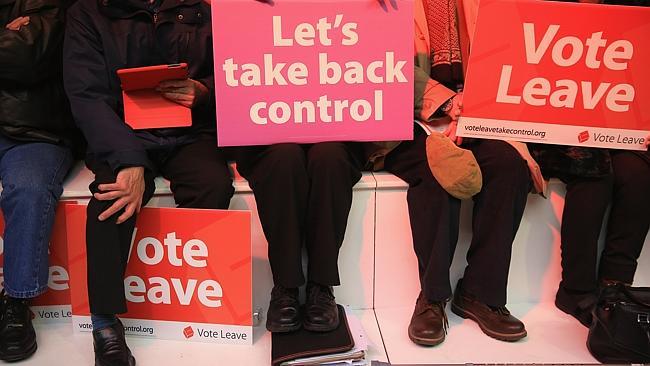‘Brexit’ would hit jobs and trade in rest of Europe, economists warn
Economists say Britain’s exit from the EU could upset trade, disrupt investment and leave a hole in the EU’s budget.

When in London this week, US President Barack Obama will add to calls for Britain to stay in the EU. Among those of similar mind: large numbers of job-seekers elsewhere in Europe.
The British economy has been a powerhouse for job creation as the EU struggled to recover from the financial crisis, churning out work not only for its own citizens, but also for hundreds of thousands of others across the 28-member bloc, from Polish nurses to Spanish engineers.
Economists say this influx has helped power British economic growth, but it has added to anxiety in London over the role of immigration as Britons debate whether to stay in the EU or go it alone as the world’s fifth-largest economy.
A referendum over whether to remain in the EU is set for June 23.
Much of the stay-or-go debate has focused on what a “Brexit” would mean for Britain. Increasingly, though, the focus has turned to the broader potential fallout for the rest of Europe.
The International Monetary Fund warned last week of “severe” regional and even global damage if Britain were to quit the EU.
Economists say Brexit could upset trade in Europe, disrupt investment and leave a hole in the EU’s budget that other countries would need to fill.
The ultimate cost would depend largely on whatever deal Europe’s second-largest economy might reach with the EU over the terms of Britain’s departure.
Brexit “is not just a UK issue,” said David Owen, chief European financial economist at investment bank Jefferies Group in London.
“It would impact the rest of the EU.”
For ordinary Europeans, the economic effects of a Brexit may be felt most in the workplace, especially if a departure ruptured one of Europe’s best conduits for steady employment.
Britain boasts one of the region’s most alluring labour markets: a combination of the English language, which many Europeans master at school; flexible labour laws that make it easy to get hired; and big cities such as London that host global employers. Britain’s jobs market has boomed while the wider EU economy, especially the 19-nation eurozone at its core, has struggled. The EU’s official statistics agency says the number of people working in all 28 states of the EU is still roughly three million short of the pre-crisis peak of 225 million reached in late 2008, a consequence of the global financial crisis but also the sovereign-debt troubles that blunted the recovery.
That’s despite an improvement in labour-force participation and recent growth spurts in some of the countries hardest-hit by the continent’s woes, such as Ireland and Spain.
Britain, which stands outside the 19-nation eurozone and so was spared the worst of the region’s debt crises, has added 1.8 million jobs since its pre-recession employment peak, taking the total number in work to 31 million. Only Germany, the EU’s largest economy, has had comparable growth, adding 1.6 million jobs to take its workforce to 41 million.
Roughly half of those new jobs in Britain have gone to European citizens, according to Britain’s official statistics agency. The number of EU citizens working in Britain has risen by two-thirds since 2008, to 2.1 million.
With the EU still struggling to recover its vim, a British departure from the bloc could complicate the region’s efforts to bring down unemployment in the years ahead.
If it left the EU, Britain would all but certainly seek to impose new restrictions on immigration to bring down the number of European workers arriving on its shores. Already, Prime Minister David Cameron has restricted new arrivals’ access to British welfare benefits. Campaigners for a Brexit argue that Britain can secure its borders only if it leaves the EU.
Christine Box, 33, a human resources adviser originally from Germany who has been in Britain since 2006, said she and her husband would think again about staying if Britain voted to leave the EU. “Brexit is going to be a big decision maker for me,” she said.



To join the conversation, please log in. Don't have an account? Register
Join the conversation, you are commenting as Logout